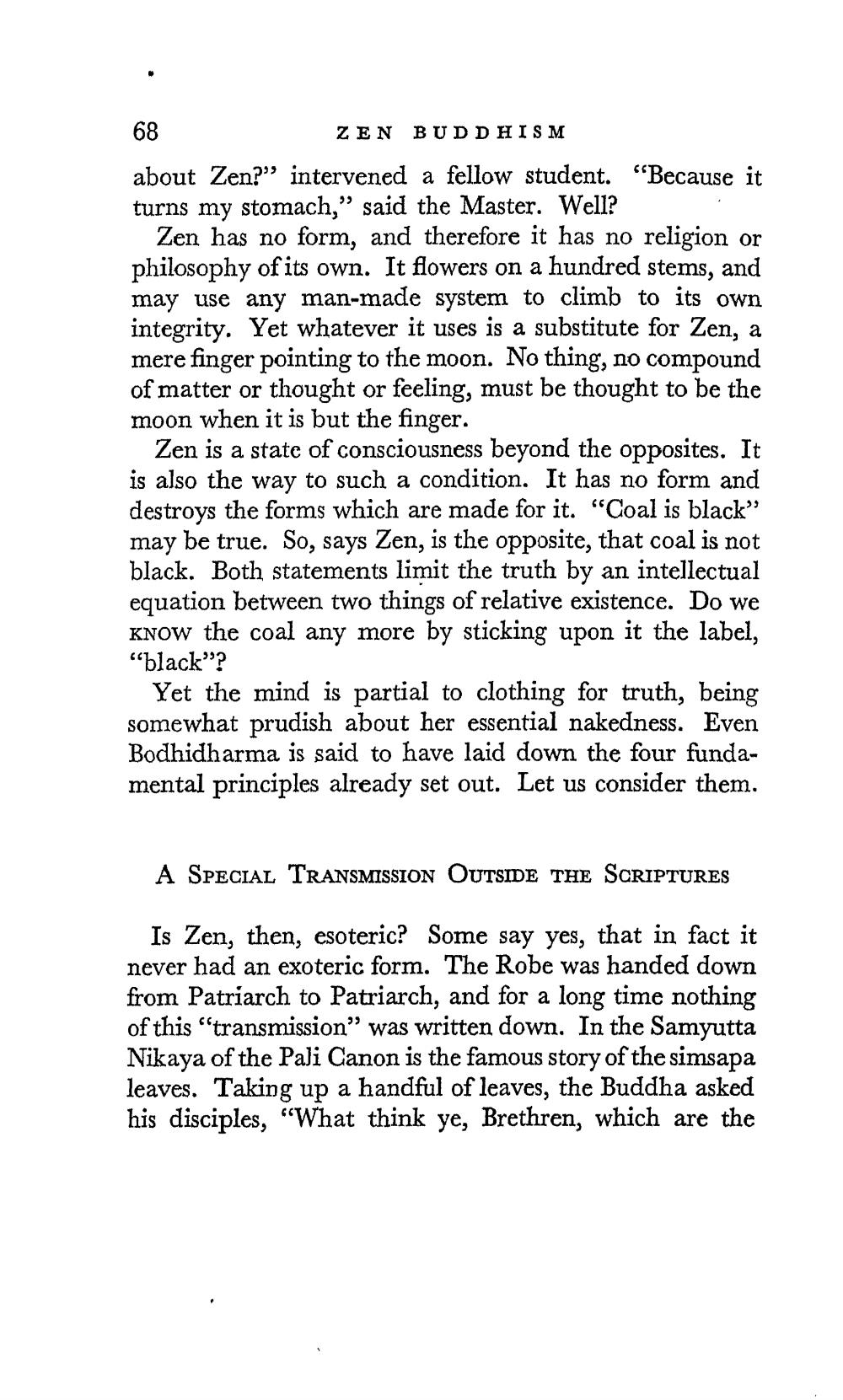________________
68
ZEN BUDDHISM
about Zen?" intervened a fellow student. "Because it turns my stomach," said the Master. Well?
Zen has no form, and therefore it has no religion or philosophy of its own. It flowers on a hundred stems, and may use any man-made system to climb to its own integrity. Yet whatever it uses is a substitute for Zen, a mere finger pointing to the moon. No thing, no compound of matter or thought or feeling, must be thought to be the moon when it is but the finger.
Zen is a state of consciousness beyond the opposites. It is also the way to such a condition. It has no form and destroys the forms which are made for it. “Coal is black” may be true. So, says Zen, is the opposite, that coal is not black. Both statements limit the truth by an intellectual equation between two things of relative existence. Do we KNOW the coal any more by sticking upon it the label, "black"?
Yet the mind is partial to clothing for truth, being somewhat prudish about her essential nakedness. Even Bodhidharma is said to have laid down the four fundamental principles already set out. Let us consider them.
A SPECIAL TRANSMISSION OUTSIDE THE SCRIPTURES
Is Zen, then, esoteric? Some say yes, that in fact it never had an exoteric form. The Robe was handed down from Patriarch to Patriarch, and for a long time nothing of this “transmission" was written down. In the Samyutta Nikaya of the Pali Canon is the famous story of the simsapa leaves. Taking up a handful of leaves, the Buddha asked his disciples, “What think ye, Brethren, which are the




